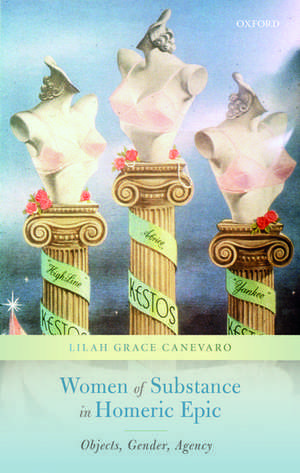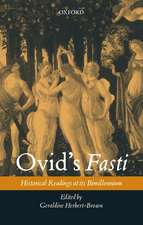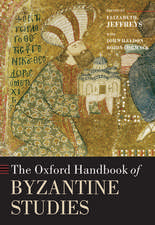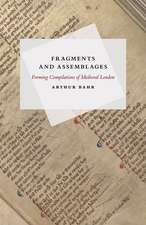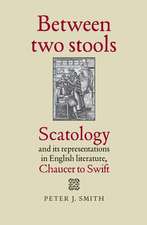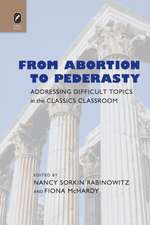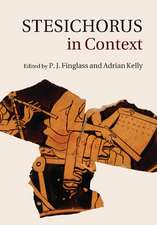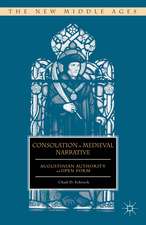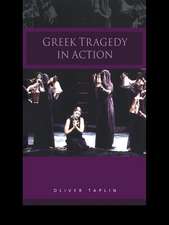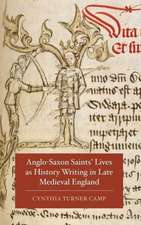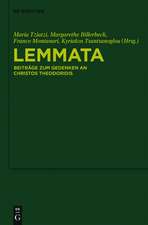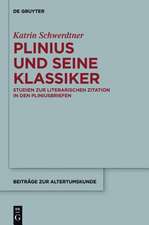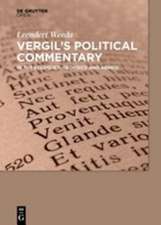Women of Substance in Homeric Epic: Objects, Gender, Agency
Autor Lilah Grace Canevaroen Limba Engleză Hardback – 3 oct 2018
Preț: 627.95 lei
Preț vechi: 850.26 lei
-26% Nou
Puncte Express: 942
Preț estimativ în valută:
120.16€ • 125.81$ • 99.66£
120.16€ • 125.81$ • 99.66£
Carte tipărită la comandă
Livrare economică 29 martie-04 aprilie
Preluare comenzi: 021 569.72.76
Specificații
ISBN-13: 9780198826309
ISBN-10: 0198826303
Pagini: 332
Ilustrații: 4 black-and-white illustrations
Dimensiuni: 145 x 224 x 25 mm
Greutate: 0.54 kg
Editura: OUP OXFORD
Colecția OUP Oxford
Locul publicării:Oxford, United Kingdom
ISBN-10: 0198826303
Pagini: 332
Ilustrații: 4 black-and-white illustrations
Dimensiuni: 145 x 224 x 25 mm
Greutate: 0.54 kg
Editura: OUP OXFORD
Colecția OUP Oxford
Locul publicării:Oxford, United Kingdom
Recenzii
an engaging and accessible book that will be of interest to those studying both women and objects in ancient literary contexts. The innovative approach is a significant contribution to studies of Homeric women, as it provides a more nuanced understanding of female gender roles and expectations in Homer ... This book also contributes to the understanding of how objects operate and how humans interact with objects in Homeric epic. Those interested in male liminality will also find this book useful, due to the inclusion of Odysseus and Hephaestus. The book might also serve as an excellent starting point for further examinations of the relationship between humans and objects in Homer.
This book is a literary study about women using, rather than merely being, objects to influence and making their own contribution to the action of the Iliad and Odyssey as well as that of the Hesiodic corpus ... The book contains an extensive bibliography and indices of passages cited and subjects as well as a small number of black and white illustrations. All Greek is translated so it is accessible to non-Greek readers, but it will remain chiefly of interest to an academic audience with a specialist interest in Homeric poetry.
Recommended.
This book is a literary study about women using, rather than merely being, objects to influence and making their own contribution to the action of the Iliad and Odyssey as well as that of the Hesiodic corpus ... The book contains an extensive bibliography and indices of passages cited and subjects as well as a small number of black and white illustrations. All Greek is translated so it is accessible to non-Greek readers, but it will remain chiefly of interest to an academic audience with a specialist interest in Homeric poetry.
Recommended.
Notă biografică
Lilah Grace Canevaro is Lecturer in Greek at the University of Edinburgh. She has been a Leverhulme Fellow in Edinburgh and a Humboldt Fellow in Heidelberg, and gained her PhD at Durham University in 2012. She is the author of Hesiod's Works and Days: How to Teach Self-Sufficiency (OUP, 2015) and co-editor with Paola Bassino and Barbara Graziosi of Conflict and Consensus in Early Greek Hexameter Poetry (CUP, 2017).
